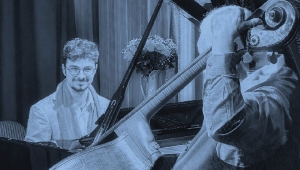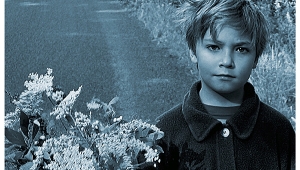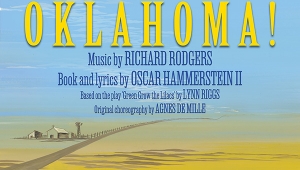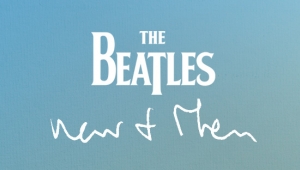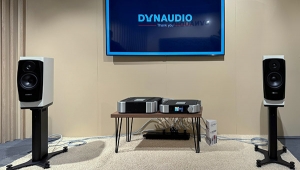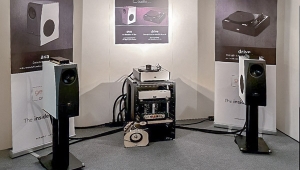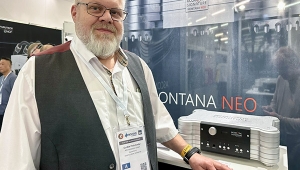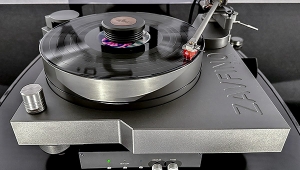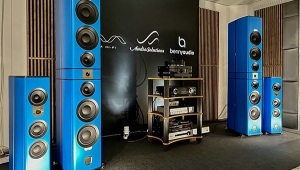| Columns Retired Columns & Blogs |
May 2024 Classical Record Reviews
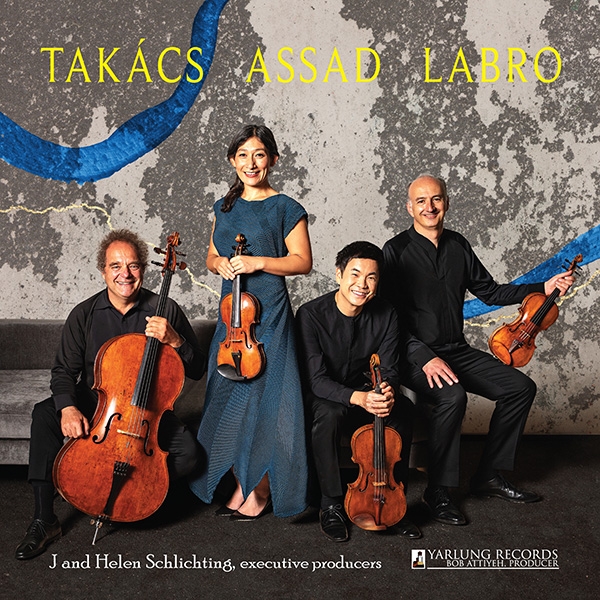
Takács Assad Labro: Pieces for bandoneón, string quartet, piano, and voice
Takács String Quartet, Clarice Assad (piano and voice), Julien Labro (bandoneón)
Yarlung YAR59691 (24/88.2 download). 2024. Bob Attiyeh, J and Helen Schlicting, prods.; Bob Attiyeh, eng.
Performance ****½
Sonics *****
Takács String Quartet, Clarice Assad (piano and voice), Julien Labro (bandoneón)
Yarlung YAR59691 (24/88.2 download). 2024. Bob Attiyeh, J and Helen Schlicting, prods.; Bob Attiyeh, eng.
Performance ****½
Sonics *****
Yarlung's latest "audiophile" recording is a breath of fresh air in every respect. Offering seven accessible, beguilingly fresh works, all composed within the last 53 years (and several quite new), it brings together stellar artistic forces: the 49-year-old Takács String Quartet; composer/pianist/vocalist Clarice Assad; and bandoneón/accordion virtuoso Julien Labro. If you're intrigued by the thought of such a combination of artists performing music that harks back to Piazzolla and classic Brazilian jazz, and also forward, then this is a must listen: You will rarely hear these artists recorded with this much color saturation, warmth, transparency, and immediacy.
The program starts with Assad's Clash, an exciting, sometimes dissonant work, complete with distant sound effects, which she wrote for the Takács and Labro to tour all over the world, followed by Labro's mellow, warm, reflective Meditation No. 1, whose mild touch of heartbreak harks back to Piazzolla. The third work is Bryce Dessner's nouveau-minimalist, forward-driving Circles. To these Assad (who constructed the program) added Milton Nascimento's classic Brazilian jazz tune Cravo e Canela, offering her own unique blend of Brazilian scat and Indian vocalization. Next up: Assad's own endearing three-movement Constellations followed by the late Kaija Saariaho's marvelous Nocturne, a short, magical journey into the unknown, dedicated to Witold Lutoslawski.
Takács Assad Labro merges elements of classical, jazz, and contemporary music as it blends distinct musical cultures. Designed to delight, it is less likely to knock your socks off than inspire you to take them off as you sit back, absorb, and smile. Highly recommended.—Jason Victor Serinus

Smetana: Má vlast
Czech Philharmonic/Semyon Bychkov
Pentatone PTC 5187203 (hi-rez WAV download). 2024. Holger Urbach, prod.; Stephan Reh, eng.
Performance ****½
Sonics ****½
Smetana's cycle of six tone poems is a Czech cultural touchstone, regularly performed at festivals and events. Bychkov, a foreigner in Prague, nods to Czech tradition while providing his own insights, especially in Vyšehrad and The Moldau. The harp arpeggios launch Vyšehrad spaciously, the winds and then the upper strings move the theme smoothly, and the little fanfare interjections are ominous rather than festive. A turbulent development tautly builds to a no-nonsense climax. After some odd rubatos from the flutes, the river Moldau flows swiftly; focused accents render the theme starkly dramatic rather than leisurely. The folk-dance rhythms are nicely marked; the transition back to the principal theme, while seamless, scans oddly.
The remainder is less revelatory but graced with effective touches. In a conventional Šárka, Bychkov shapes the turbulent opening with rhetorical rubatos, and the clarinet obbligato over the march registers as a broad, arching melody. Bychkov can't quite mitigate the busy scoring of From Bohemia's Woods and Fields, but the opening is imposing, and the fugal episode elides smoothly into the affirmative anthem.
The crisply articulate Tábor offers fervent wind chorales and, against the chugging triplets, a clear, lively interplay of motifs. An unmarked ritard and fade helps keep the transition into Blaník from sounding redundant. The lyric episode before the triumphant reprise is unusually tender and poignant, and the coda is the best balanced since Kubelik's monophonic Mercury recording. (I am not joking.)
The orchestra plays with polished style, though the strings "speak" slightly later than the winds on a few attacks. The wide, vivid soundstage offers satisfying depth in the brass-choir climaxes of the final two movements, and, over headphones, a few stray noises.—Stephen Francis Vasta

Tchaikovsky, Korngold: Souvenir de Florence, String Sextet
The Nash Ensemble
Hyperion CDA68406 (CD). 2024. Andrew Keener, prod.; Oscar Torres, eng.
Performance ****
Sonics ****
If you know the classic Borodin Quartet (and friends) Souvenir de Florence, the opening here may disappoint. The Nashes, though vigorous and propulsive, sound thin by comparison, and in the second group, the buoyant violin gets a finicky accompaniment. But by the development, the players banish the Borodins' shade, leaning into the broad, tenuto lines and committing to the music's ardor, even if the elaborate coda wants to run away.
There's no problem with the saturated tone of the Adagio cantabile, though it's more nearly andante; after the agitated central section, the recap's faster pizzicatos don't faze the players. The Allegretto's melancholy, authentically folklike contours artfully combine with the chipper "B" theme in the return. Another folk-inflected theme launches the finale; the second group's accompaniment seems deliberately held down—the Borodins underlined its obsessiveness—but the recap is open-hearted.
With Korngold, you never know whether you'll get Hollywood's lush Romantic or a chilly modernist. In the Sextet, he's both. The angular fragments that begin the first movement coalesce into a bed of plush homophony; the second group is spacious, horizontally and vertically. Light, open textures make the music seem "modern," with some (Richard) Straussian pivots.
Stabbing accents yield to an unsettled, vaguely Expressionist Adagio; Korngold works through the twists and turns, and the 10-minute movement holds together well. In place of a scherzo, a wandering Intermezzo turns into a Ländler, becoming a slower waltz in the trio with an abrupt, heartfelt outpouring in the home stretch. The Finale offers a cheerful, vigorous start and a quirky second group, with bits of pure Weill in the development. The players are vigorous in the fast movements. The sonics are pleasing.—Stephen Francis Vasta
- Log in or register to post comments
